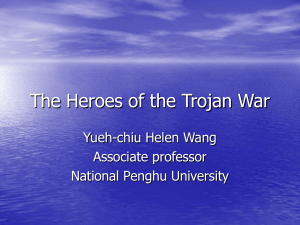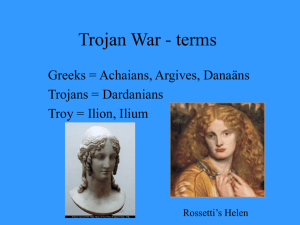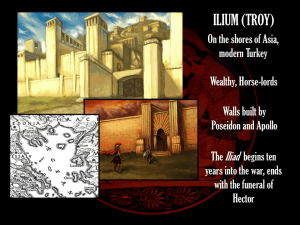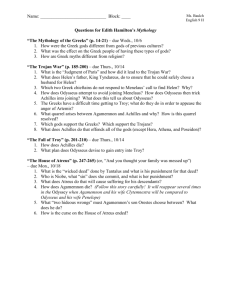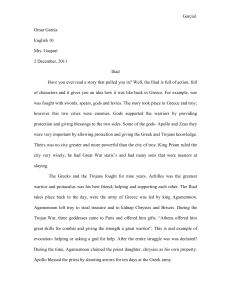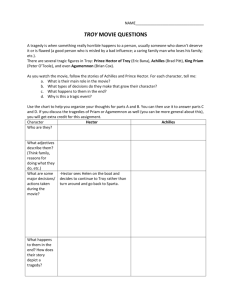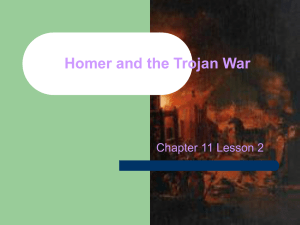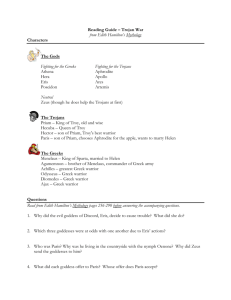The Trojan War - Baltimore City Public School System
advertisement
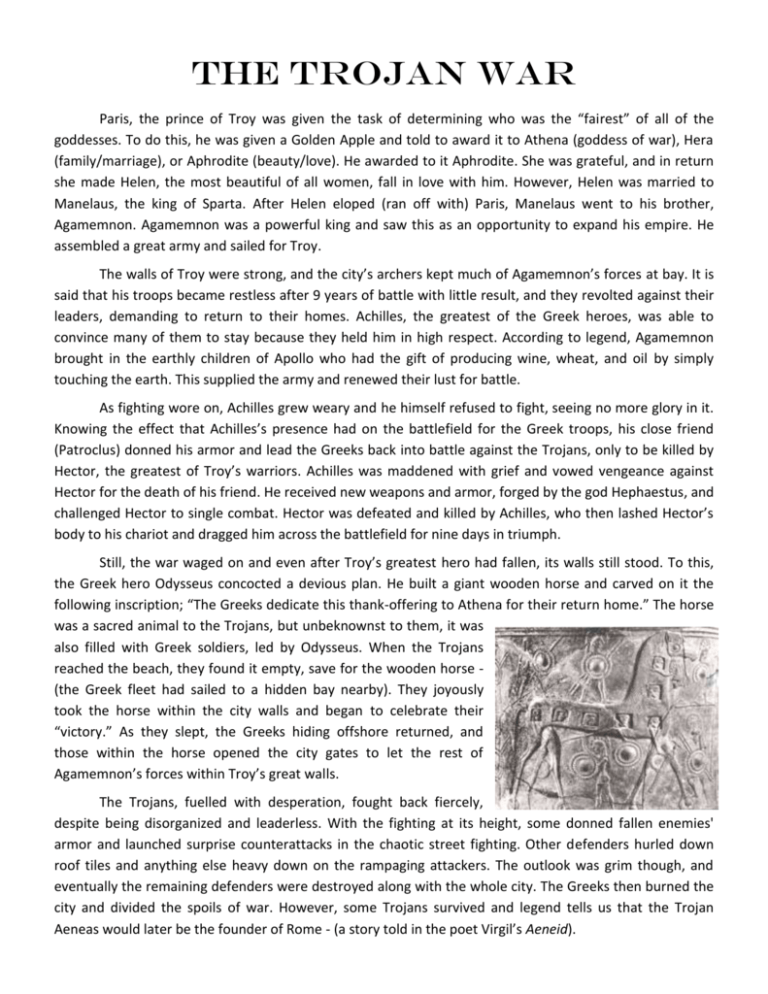
The Trojan War Paris, the prince of Troy was given the task of determining who was the “fairest” of all of the goddesses. To do this, he was given a Golden Apple and told to award it to Athena (goddess of war), Hera (family/marriage), or Aphrodite (beauty/love). He awarded to it Aphrodite. She was grateful, and in return she made Helen, the most beautiful of all women, fall in love with him. However, Helen was married to Manelaus, the king of Sparta. After Helen eloped (ran off with) Paris, Manelaus went to his brother, Agamemnon. Agamemnon was a powerful king and saw this as an opportunity to expand his empire. He assembled a great army and sailed for Troy. The walls of Troy were strong, and the city’s archers kept much of Agamemnon’s forces at bay. It is said that his troops became restless after 9 years of battle with little result, and they revolted against their leaders, demanding to return to their homes. Achilles, the greatest of the Greek heroes, was able to convince many of them to stay because they held him in high respect. According to legend, Agamemnon brought in the earthly children of Apollo who had the gift of producing wine, wheat, and oil by simply touching the earth. This supplied the army and renewed their lust for battle. As fighting wore on, Achilles grew weary and he himself refused to fight, seeing no more glory in it. Knowing the effect that Achilles’s presence had on the battlefield for the Greek troops, his close friend (Patroclus) donned his armor and lead the Greeks back into battle against the Trojans, only to be killed by Hector, the greatest of Troy’s warriors. Achilles was maddened with grief and vowed vengeance against Hector for the death of his friend. He received new weapons and armor, forged by the god Hephaestus, and challenged Hector to single combat. Hector was defeated and killed by Achilles, who then lashed Hector’s body to his chariot and dragged him across the battlefield for nine days in triumph. Still, the war waged on and even after Troy’s greatest hero had fallen, its walls still stood. To this, the Greek hero Odysseus concocted a devious plan. He built a giant wooden horse and carved on it the following inscription; “The Greeks dedicate this thank-offering to Athena for their return home.” The horse was a sacred animal to the Trojans, but unbeknownst to them, it was also filled with Greek soldiers, led by Odysseus. When the Trojans reached the beach, they found it empty, save for the wooden horse (the Greek fleet had sailed to a hidden bay nearby). They joyously took the horse within the city walls and began to celebrate their “victory.” As they slept, the Greeks hiding offshore returned, and those within the horse opened the city gates to let the rest of Agamemnon’s forces within Troy’s great walls. The Trojans, fuelled with desperation, fought back fiercely, despite being disorganized and leaderless. With the fighting at its height, some donned fallen enemies' armor and launched surprise counterattacks in the chaotic street fighting. Other defenders hurled down roof tiles and anything else heavy down on the rampaging attackers. The outlook was grim though, and eventually the remaining defenders were destroyed along with the whole city. The Greeks then burned the city and divided the spoils of war. However, some Trojans survived and legend tells us that the Trojan Aeneas would later be the founder of Rome - (a story told in the poet Virgil’s Aeneid).

